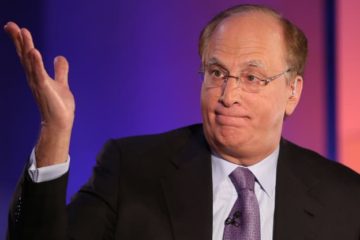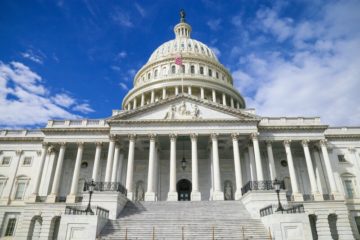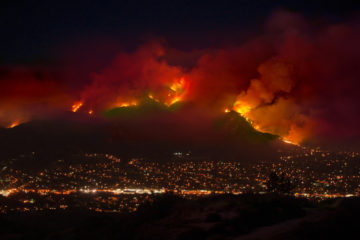EXCLUSIVE / The coal industry’s European lobbying association has said that the landmark deal to cap global warming at the UN Climate Change Conference (COP21) in Paris means the sector “will be hated and vilified, in the same way that slave traders were once hated and vilified”.
Brian Ricketts, Secretary-General of the European Association for Coal and Lignite (Euracoal), wrote to his members, “The climate bandwagon is rolling and gathering speed such that the fossil fuel industry will spend the coming years and decades in the spotlight for all the wrong reasons.”
“This is not a sustainable position and the industry should no longer acquiesce,” he added, after accusing governments and the European Commission of being “in cahoots with protest movements”.
On Saturday (12 December), world governments approved a historic agreement to cap global warming at “well below” two degrees above pre-industrial levels, and aim for 1.5 degrees in the future.
Coal is a fossil fuel that contributes to carbon emissions and global warming. Euracoal styles itself as “the voice of coal” and says it works closely with the EU institutions on policy.
The Paris agreement was greeted with scenes of celebration and emotion among delegations, who struggled for 13 days to overcome divisions between developing and developed countries.
“You might be relieved that the agreement is weak. Don’t be. The words and legal basis no longer matter,” Ricketts told his members. “Fossil fuels are portrayed by the UN as public enemy number one.”
“’Keep it in the ground’ campaigns will morph into campaigns to ‘Put it back in the ground’, watched with growing incredulity,” he predicted.
‘Global government’
“COP21 has boosted egos and made many people feel that they are engaged in something momentous,” Ricketts said after saying the deal was based on a “UN lie” about the future potential of renewables. “If emotional energy could power the planet, then COP21 has provided us with enough to keep the lights on for the next hundred years.”
It was an achievement to get the agreement between 196 nations but, Ricketts said, it was the first step to a “global government”.
Euracoal has 34 members from 20 countries, including France, Germany, Italy, Spain, Poland and Great Britain, include national coal associations, importers associations, research institutes and individual companies.
NGOs and Commission attacked
Ricketts turned his fire on NGOs, many of which demonstrated in Paris during the talks, and the European Commission, which he claimed was “outmanoeuvred” by the US at the COP21.
“The rule of law is being replaced by mob rule,” he said, after describing a Greenpeace climate protest that painted roads around the Arc de Triomphe yellow to represent the sun during the COP21.
“The ballot box is seen as an inadequate tool by those who know better than the ‘man in the street’ about complicated problems such as climate change,” wrote the Euracoal boss, after alleging that governments used NGOs, some of which they fund, to bypass the democratic purpose.
Ricketts scoffed at the idea that the European Commission had helped lead the world to the climate agreement, as it has claimed.
He told EurActiv, “The EU has been well and truly stitched up by our US friends! Watching the Commission explain why we, in the EU, now face emission reduction targets would be entertaining, if it were not so serious.”
Ricketts said that no other countries agreed to any targets. In October 2014, EU leaders agreed to reduce greenhouse gas emissions by at least 40% compared to 1990 by 2030. They also agreed to boost renewables and energy efficiency by 27%.
“No other countries agreed to any targets. As a minimum, the EU must, before 22 April 2016, submit a less ambitious climate plan to the UN,” Ricketts said.
In the build-up to Paris, countries submitted Intended Nationally Determined Contributions (INDCs) to the UN. These climate reduction pledges will be reviewed every five years under the COP21 deal.
Euracoal has lobbied for an EU greenhouse gas reduction of 30% by 2030. “We clearly don’t ‘lead the world’ and must now get back to the dull-old business of wealth creation,” Ricketts added.
Other businesses and industries have been broadly supportive of the deal in Paris. Earlier today, German business giants called on the EU to increase its 2030 targets.
Ricketts took the top job at Euracoal in August 2010. He previously worked for the International Energy Agency, as a coal analyst.
It is not the first time that Ricketts has attacked green NGOs. He recently accused the European Climate Foundation of “twisting the truth” and “undermining democracy with “money and power”.
Jiri Jerabek, Greenpeace EU energy policy adviser, said: “Coal needs to stay underground to avoid climate change, but this is nothing new, not even for the coal industry. In November the UK announced a plan to phase out all its coal-fired power stations by 2025, and Austria, Portugal and Finland will also become coal-free within the next decade.
“The trend is clear. In 2014, for the first time, renewables produced more electricity than coal in the EU. With dozens of coal plants headed for closure and more and more Europeans already producing their own renewable energy, an increasing number of companies have turned away from coal and financial institutions have stopped investing in it.“
BACKGROUND
Negotiations on climate change began in 1992, and the UN organises an annual international climate change conference called the Conference of the Parties, or COP.
Paris hosted the all-important 21st conference in December 2015. The participating states reached an agreement to replace the Kyoto Protocol, the object of which was to reduce CO2 emissions between 2008 and 2012.



